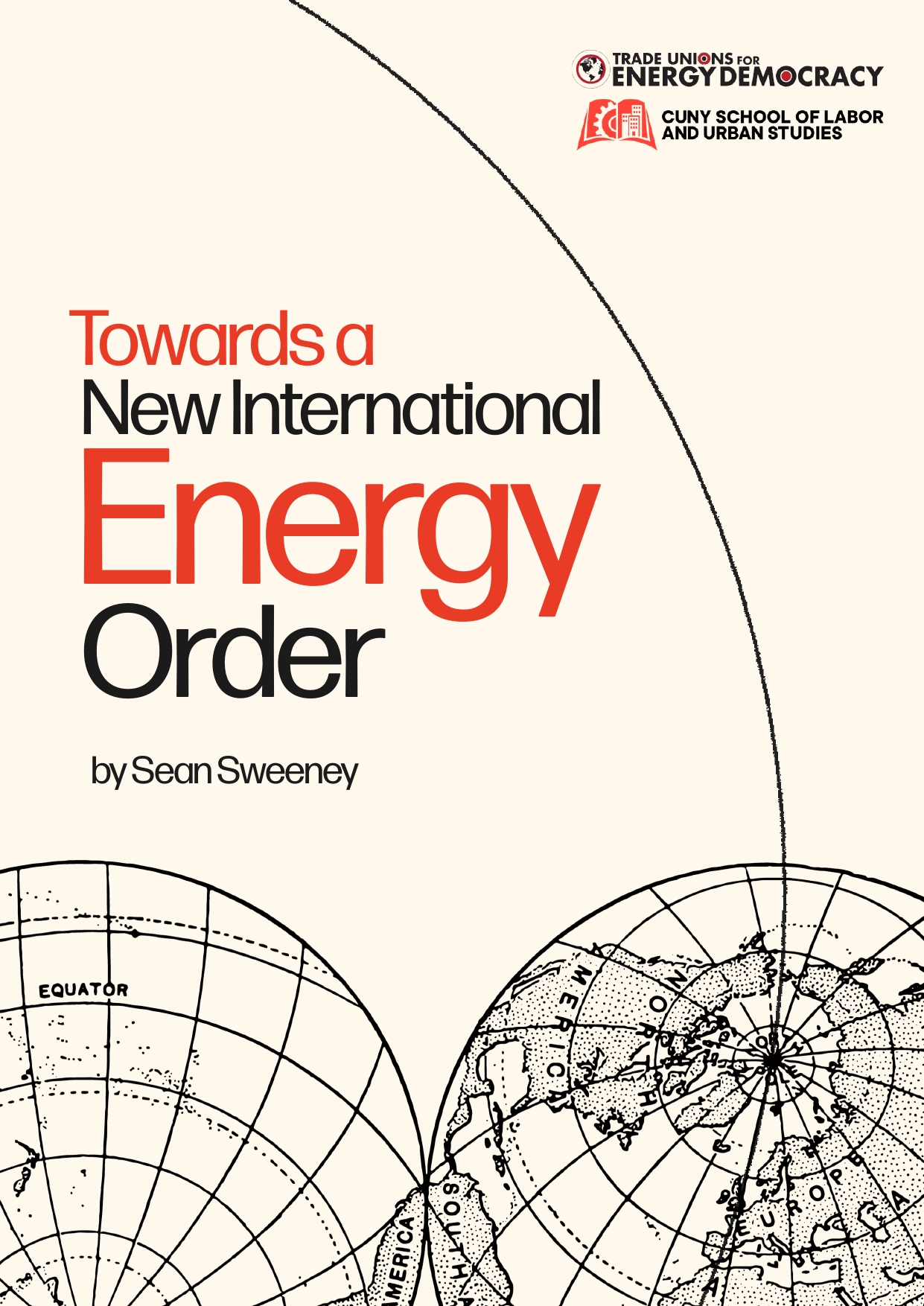
This working paper served as a discussion document forthe Second TUED South Inter-Regional Meeting which took place in February 2025 in Mexico City. The meeting gathered 120 union leaders and allies from 35 countries. For more information on the meeting, visit bit.ly/TUED-Mx.


This document is a position paper on energy poverty and energy transition developed by trade unions in sub-Saharan Africa (SSA) active in the TUED South network.
Because of its pivotal role in shaping and directing energy policy for many decades, the paper is primarily concerned with the policies of the World Bank. The paper explains why the Bank’s current approach to energy poverty and energy transition is not working and why it needs to change.
The goal of the position paper is to arm the international trade union movement and its allies with the facts. These facts lay bare a policy failure of immense proportions.
-1_page-0001%20(1).jpg)
TUED’s 16th Working Paper examines the ongoing and closely related discussions on the idea of a Global Green New Deal (GGND) and (GPGs).
Following the onset of the COVID-19 pandemic in early 2020, calls for a GGND and a commitment to GPGs intensified. In July 2020, UN Secretary-General Antonio Guterres declared, “The global political and economic system is not delivering on critical global public goods: public health, climate action, sustainable development, peace…we need a New Global Deal to ensure that power, wealth and opportunities are shared more broadly and fairly at the international level.”
Authored by TUED Coordinator Sean Sweeney, the paper argues that a GGND of the left must distinguish itself from green “recovery economics.” Many North-based progressives are comfortable talking about the need for “more public investment,” and the need for “ambitious climate action” but many continue to be vague or agnostic on questions of public ownership and control.
.jpg)
This TUED Working Paper was written to inform discussion at the launch of “TUED South” meeting that took place in Nairobi, Kenya, in October 2022. Building on previous TUED Working Papers, the goal of this document was to bring to Nairobi an analysis and a series of broad proposals and considerations that might inform a public pathway alternative to the current neoliberal approach to energy transition and climate protection.
This is the document's second draft; the final document is in the editing process and will be published here when complete.
Read in: Español // Français // Português //عربي // Bahasa Indonesian

In the newest Working Paper of Trade Unions for Energy Democracy, John Treat dives deeply into the conversations around hydrogen. Treat explains the entire rainbow of colors of hydrogen, their applications and potential, and then explains why comprehensive public ownership needs to be a prerequisite before any of these conversations.
Treat continues the TUED analysis around public ownership for unions and extends it into the hydrogen conversations. We hope this analysis assists unions in understanding the key topics and conversations around a really heated debate.